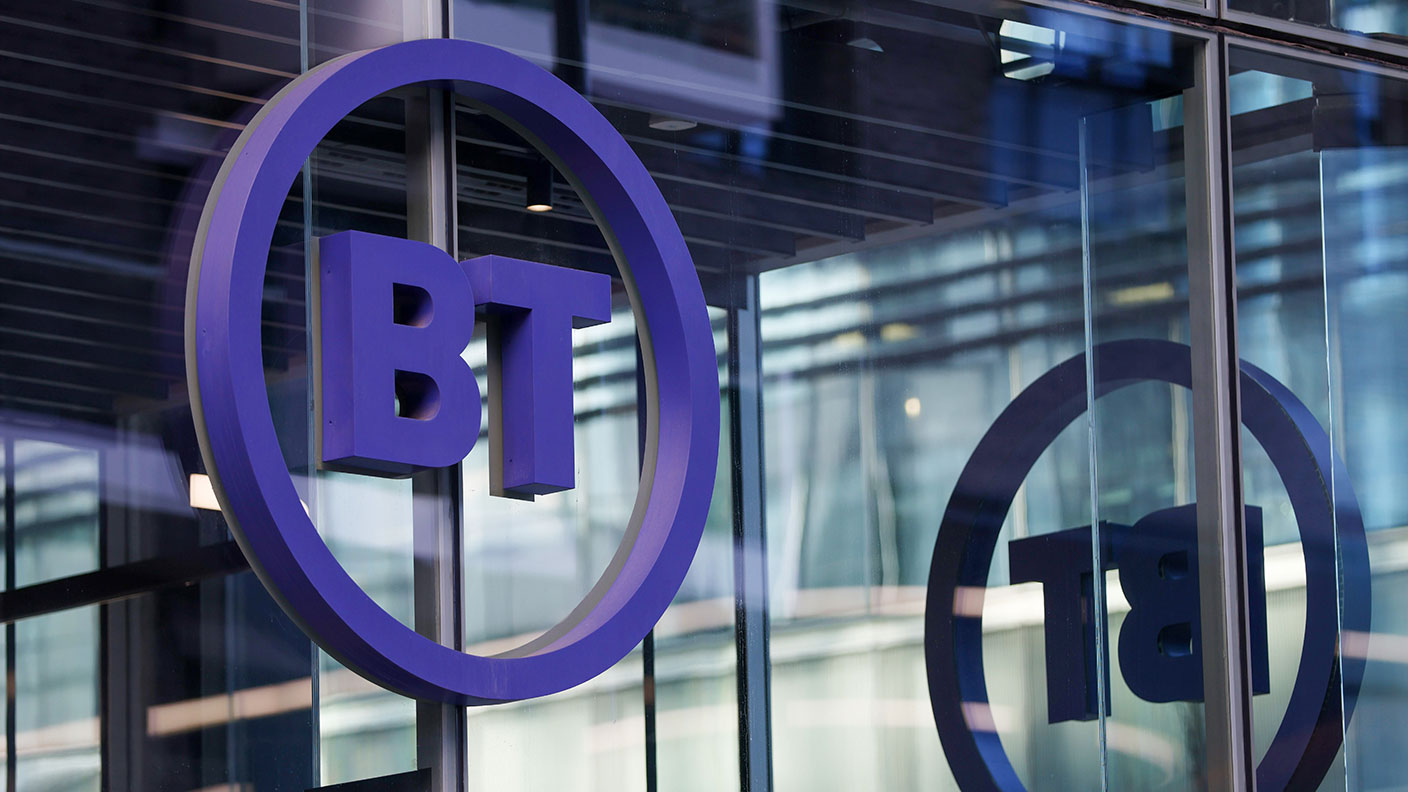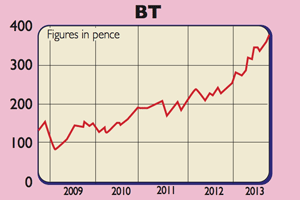BT’s football coup
BT has made an aggressive move into the pay-TV sector, snatching lucrative football rights from Sky and ITV. But has it paid too high a price? Simon Wilson investigates.
Get the latest financial news, insights and expert analysis from our award-winning MoneyWeek team, to help you understand what really matters when it comes to your finances.
You are now subscribed
Your newsletter sign-up was successful
Want to add more newsletters?

Twice daily
MoneyWeek
Get the latest financial news, insights and expert analysis from our award-winning MoneyWeek team, to help you understand what really matters when it comes to your finances.

Four times a week
Look After My Bills
Sign up to our free money-saving newsletter, filled with the latest news and expert advice to help you find the best tips and deals for managing your bills. Start saving today!
What's happened?
(For the footballing refuseniks out there, the Uefa Champions League is the elite pan-European club competition traditionally known as the European Cup; the Uefa Europa League is a second-tier competition, formerly known as the Uefa Cup.)
It's the first time a single broadcaster has won exclusive UK rights to broadcast the Champions League, and it hugely ramps up the threat to Sky's dominance in the pay-TV market posed by the resurgent BT's heavy investment in its two new BT Sport channels.
How much has BT paid?
Football is, of course, no stranger to exorbitant price inflation. In June 2012, when BT snaffled 38 Premier League games a season for £738m, it forced Sky to pay £2.3bn for the other 116 a 70% price hike on the previous contract. But this new Champions League deal has upped the price of sports rights even more rapidly.
MoneyWeek
Subscribe to MoneyWeek today and get your first six magazine issues absolutely FREE

Sign up to Money Morning
Don't miss the latest investment and personal finances news, market analysis, plus money-saving tips with our free twice-daily newsletter
Don't miss the latest investment and personal finances news, market analysis, plus money-saving tips with our free twice-daily newsletter
BT, which generates free cash flow of about £2.3bn a year compared to £1bn for Sky, reckons it can afford it; Sky says it has dramatically overpaid.
Why have Sky shares slumped?
When BT committed £738m to Premier League rights in last summer's auction, it represented the biggest rights challenge to Sky in 20 years, and appears to be proving a success for BT: its two sports channels have been taken up by two million of the company's broadband subscribers, plus two million Virgin Media households.
Even so, in terms of football rights, it wasn't a game-changer: Sky had previously been obliged to share rights with the likes of Setanta and ESPN. But BT Sport's coup in poaching the Champions League is a far bigger deal, in every sense.
What makes this a big deal?
Second, and more fundamentally, the deal is a major milestone in the convergence in the telecoms and TV markets. BT (like rival Talk Talk) is alive to the fact that premium TV content is a great way to sell a triple-play' package (phone, broadband and TV from one provider).
BT first moved into pay-TV (Sky's historic strength) after Sky began offering a triple-play that ate into BT's broadband subscriber base. Now BT has shown it is more than ready to fight back. Investors fear that Sky will have to pay a truly colossal sum in 2015 to defend its Premier League position.
Is it all bad news for Sky?
Deutsche Bank analysts argued that "the risk of major sub[scriber] loss from Sky Sports to BT for one Premier League game a week and four game evenings per month of Champions League, looks very low".Westhouse Securities praised both Sky and ITV for "maintaining financial discipline" in bidding only what they could afford.
Moreover, Sky still has a range of sports rights locked up for the next few years. Losing the Champions League could allow it to invest the £400m over three years in further quality drama, or hardware upgrades.
On the other hand, other analysts see a radically altered sector, such as John Karidis at Oriel Securities: "We believe (i) BT will win back more share of telecom market value than we had expected, and (ii) Sky will permanently become a meaningfully lesser threat to BT's future."
In any event, as Robert Peston of the BBC notes, nobody need feel too sorry for Sky. It might just have been kicked "in its most sensitive organ". But the channel's history shows it will "take little time trying to find an effective way to retaliate."
The winners and losers
James Barford of Enders Analysis calculates that Britain is now spending more per head on sports rights ($70 a pop) than anywhere else in the world, overtaking the US on $67 with every chance of even hotter competition for the Premier League in the 2015 bidding round.
It's not yet clear what BT's pricing structure for post-2015 will be, but somewhere along the line all that outlay will need to be recouped which could mean higher prices.
Get the latest financial news, insights and expert analysis from our award-winning MoneyWeek team, to help you understand what really matters when it comes to your finances.
-
 Early signs of the AI apocalypse?
Early signs of the AI apocalypse?Uncertainty is rife as investors question what the impact of AI will be.
-
 Reach for the stars to boost Britain's space industry
Reach for the stars to boost Britain's space industryopinion We can’t afford to neglect Britain's space industry. Unfortunately, the government is taking completely the wrong approach, says Matthew Lynn
-
 BT is making progress and the dividend is back – but is it time to buy yet?
BT is making progress and the dividend is back – but is it time to buy yet?Analysis Investors in telecoms giant BT have seen dismal returns over the last 15 years. But there are signs that it is starting to turn things around, says Rupert Hargreaves. So should you buy BT shares?
-
 Football’s £5bn bonanza
Football’s £5bn bonanzaFeatures Competition between Sky and BT for rights to screen the footie has handed a £5bn windfall to the English Premier League. Can that really be a good deal? Simon Wilson reports.
-
Sell your telecoms shares – this merger madness is bound to end in misery
Opinion A lot of money will be spent in the telecoms tie-up frenzy – but much of it will be wasted, says Matthew Lynn.
-
A shake-up for the sleepy telecoms sector
Features The shape of the telecoms sector is changing, as BT's ambitious plans show.
-
Vodafone takes fight to BT
News Telecoms giant Vodafone has vowed to take on BT in the broadband and television market.
-
Company in the news: BT
Features BT is a company in rude health, but support for the share is waning, says Phil Oakley.
-
 Why higher interest rates could be good news for BT
Why higher interest rates could be good news for BTFeatures A rise in interest rates could deliver a nice boost to BT, one of Britain’s largest companies, says Phil Oakley. Here’s why.
-
 Companies in the news: BT and Merlin Entertainments
Companies in the news: BT and Merlin EntertainmentsFeatures BT has staked its future on Premier League football, and the owners of Alton Towers are floating the company. Is it time to buy? Phil Oakley reports.